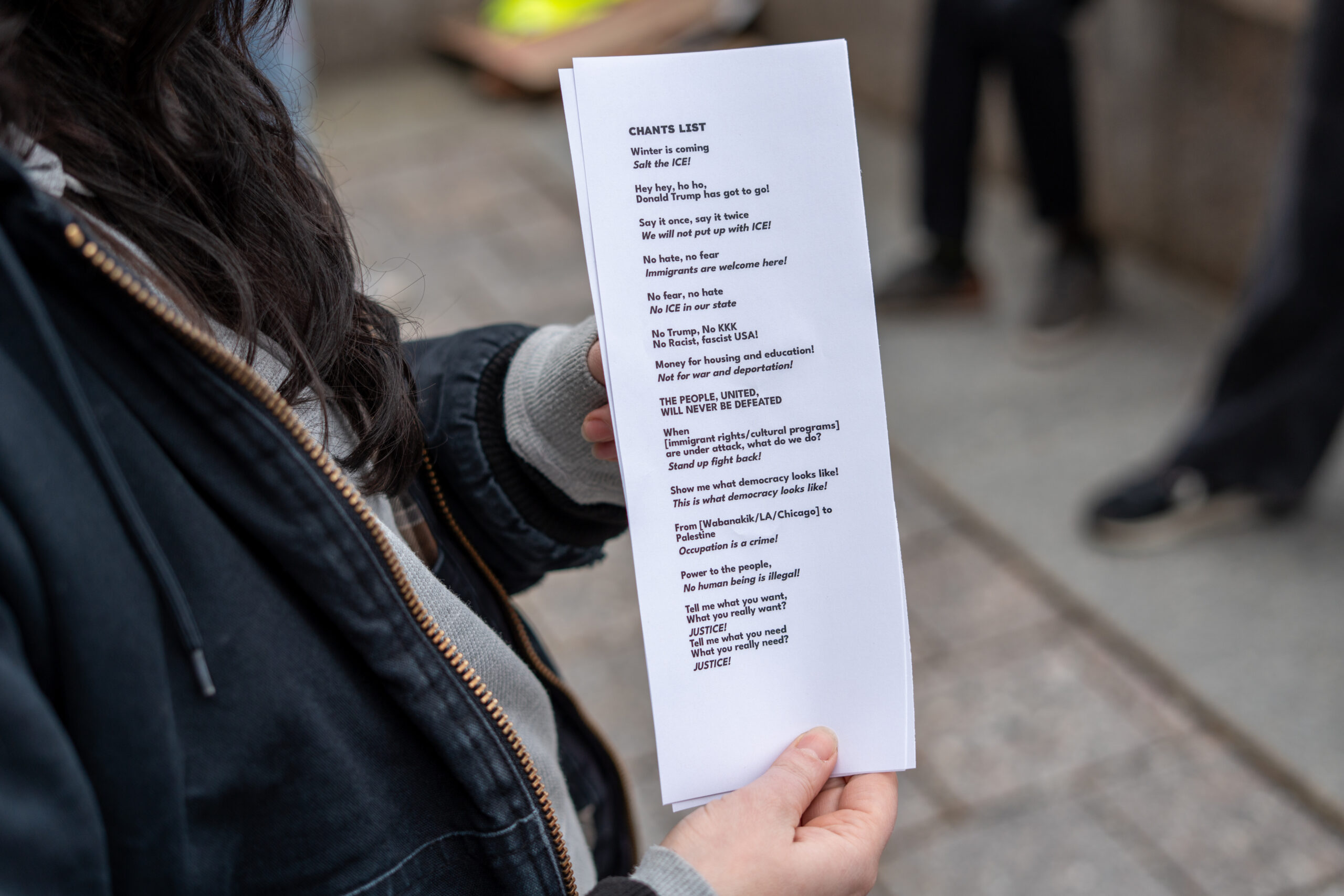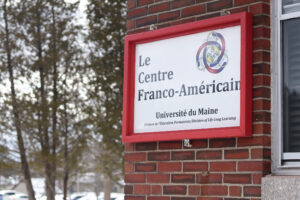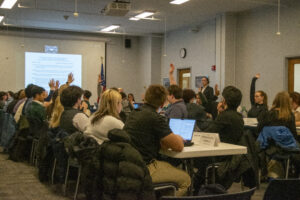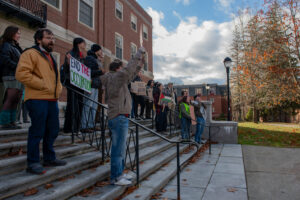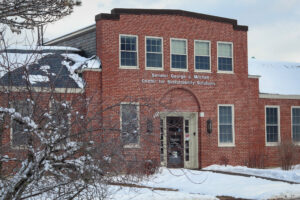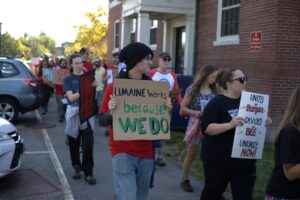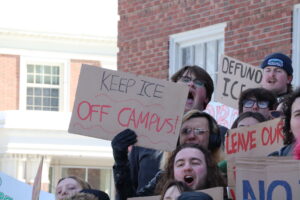On Nov. 21, the University of Maine’s chapter of Students for a Democratic Society (SDS) met on the steps of Fogler Library at noon to demonstrate frustration and defiance against the Trump administration’s current agenda.
One of several students leading the rally was SDS member Gabriel Veilleux, who organized the demonstration.
In his opening remarks, Veilleux led the group in several chants, such as “Say it once, say it twice, we will not put up with ICE,” also adding, “No hate, no fear, immigrants are welcome here,” and “No Trump, no KKK, no racist fascist USA.”

Veilleux introduced SDS member and third-year student Mo Drammeh to discuss the current threat of Immigration and Customs Enforcement (ICE) on college campuses.
“We are at a tumultuous and dark time in our country’s already tumultuous and dark history. In Washington, the President has openly declared war on major American cities and regularly deployed his Immigration and Customs enforcement to extra-judicially target and detain people all across the country with no due process. This includes many cities in our own state, Bangor, Lewiston and Hamden,” said Drammeh. “[ICE is] capturing whomever they please and sending them to detention centers in which they experience criminally inhuman conditions.”
The crowd applauded and held their signs high in agreement that the current administration’s empowering of ICE has gone too far.
“They [immigrants] deserve the same human rights as all of us. There’s no reason to detain people, to bring them to a detention center, or to treat them inhumanely at all. Let alone the other transgressions of the Trump regime,” said Emily Hodgins, a second-year student at UMaine.

Focusing on the ongoing issues regarding the demolition of Crossland Hall, which contains the Franco-American Centre, graduate student Lincoln Tiner discussed the history and general suppression of Franco-Americans in Maine.
“The Franco-American Centre has long been a crucial institution for passing down Franco-American history, heritage and languages, all of which continue to be endangered due to systemic oppression that happens. [There were laws] targeting Franco-Americans, this included a Maine law banning Franco-Americans from even speaking French, a form of legalized suppression that was in place for over 50 years,” said Tiner.
The ban that barred Franco-American students from speaking French in public schools lasted from 1919 until 1969, when the law was repealed. The Franco-American Centre was founded shortly after the law was lifted by student activists fighting against the suppression of French-speaking students
In current talks between the Orono Town Council and the UMaine Board of Trustees (BoT), the building is proposed to be demolished in the upcoming year and the Franco-American Centre is to be relocated to Libby Hall. These changes coincide with the announcement of a new sports facility on campus, in which Crossland Hall’s destruction would provide 200 new parking spaces for the facility, according to UMaine’s “Crossland Hall Removal Fact Sheet” website. UMaine BoT has not yet approved this proposal, as they will be considering which actions to take in the coming months.
“I encourage you all to contact them [UMaine BoT] and tell them that cultural centers such as the Franco-American Centre matter on this campus, and urge them to reject this ill-conceived plan before it is too late. It was through student activism like this that the Franco-American Center was first established decades ago, and it will be through this very same student activism that it will be saved,” said Tiner in his closing remarks.

UMaine Jewish Voices for Peace (JVP) President, Talia Cullum, joined the demonstration organized by SDS. Cullum covered the topic of ICE and its overstepping of power.
“The issue of ICE has been near and dear to JVP’s heart since the abduction of Mahmoud Khalil in New York City. This issue is something that I worked on heavily last semester. Meeting with the faculty senate, the student government, the graduate student government and our very own dean of students,” said Cullum.
Mahmoud Khalil is a Columbia graduate student who was arrested in March 2025 after attending a pro-Palestinian rally. The justification for Khalil’s arrest was due to President Trump’s executive order prohibiting anti-semitism.
Cullum discussed her meeting with the University of Maine Student Government (UMSG) and their unwillingness to take action against advancements of ICE due to their 5013c status, which prevents a group from discussing partisan politics.
In response, Cullum said, “JVP is a 5013c, and we can say whatever we want about ICE and immigration. In the U.S., 5013c status prevents you from talking about partisan politics. ICE, last time I checked, isn’t a part of a party in the U.S.”
Later in an interview, Cullum discussed ways that the university could alert students of ICE presence on campus through its already in place campus-wide alert system.
“We already have a campus-wide alert system that we use for when police do training, when there’s a high police presence on campus. It only makes sense to also notify students if federal agents are on campus,” said Cullum.

Around 12:30 p.m., the group marched their way along the University Mall, continuing a series of rotating chants.
“Winter is coming, salt the ICE,” “Hey hey, ho ho, Donald Trump has got to go,” and “No fear, no hate, no ICE in our state,” chanted the protestors. “From Wabanaki to Palestine. Occupation is a crime,” they said.

Ending their demonstration, the group once again stood at the steps of Fogler Library.
“No longer can we stand for this, so we need to get organized is what I’m getting at here. Join a student organization on campus. You can join Students for a Democratic Society and start building that movement today,” said Veilleux in his closing remarks.
SDS meets every Tuesday at 6:30 p.m. in the Multicultural Student Center, which is room 312 of the Memorial Union.
